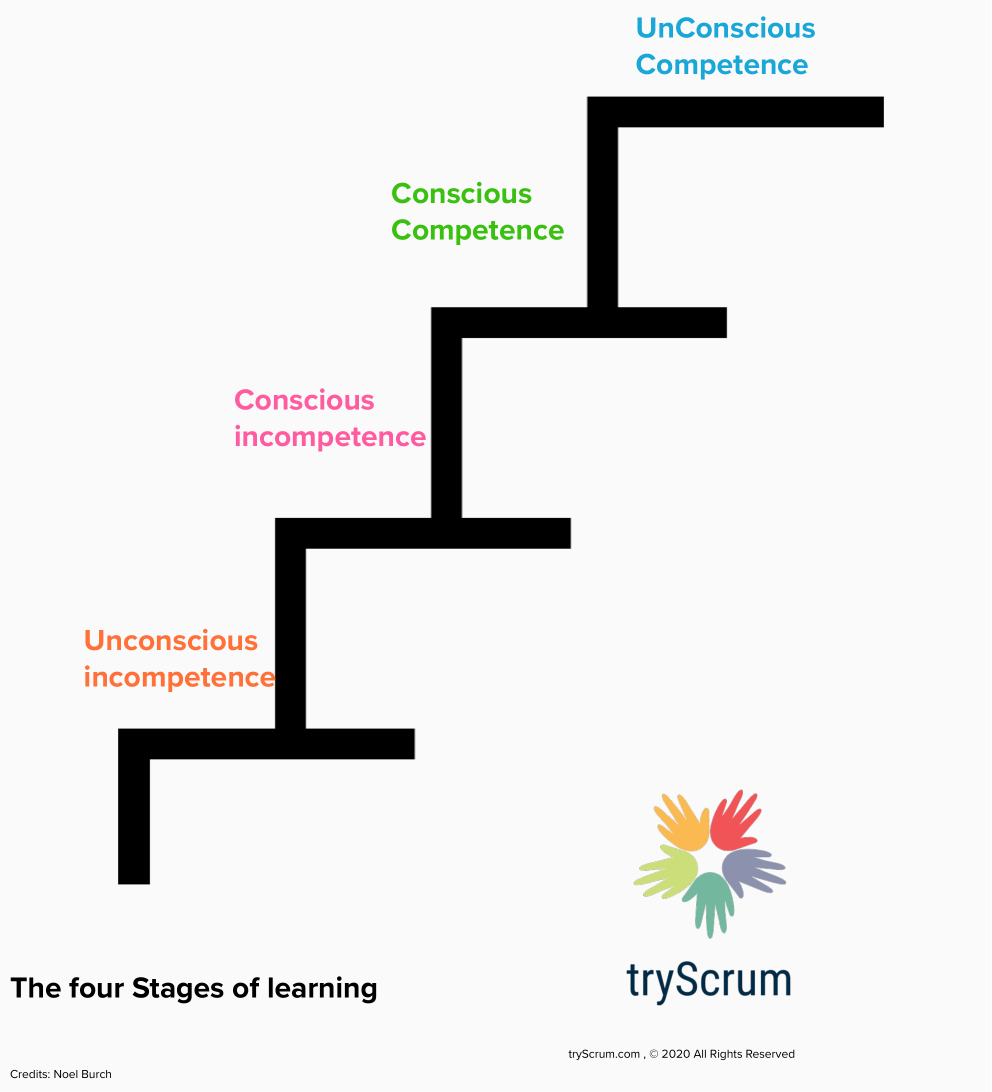Noel Burch, a psychologist, created a learning model to describe how humans go through four stages of learning when introduced to a new skill. When we learn new skills, we experience different emotions at different stages of the learning process. In the beginning, we may not realize how much we need to learn. Then, when we discover what we don’t know about a subject, we may get disheartened and even give up. Recognizing how we feel at each stage of the learning process can help us “stick with it” and manage these emotional ups and downs. The Stages that he describes are
Unconscious incompetence:
The individual does not understand or know how to do something and does not necessarily recognize the deficit. As a result, they may deny the usefulness of the skill. The individual must recognize their incompetence and the value of the new skill before moving on to the next stage. The length of time an individual spends in this stage depends on the strength of the stimulus to learn.
Conscious incompetence:
Though the individual does not understand or know how to do something, they recognize the gaps and the value of a new skill in addressing them. The making of mistakes can be integral to the learning process at this stage. Our minds are now aware that we are at the beginning of a long learning curve.
Conscious Competence:
The individual understands or knows how to do something. However, demonstrating the skill or knowledge requires concentration. It may be broken down into steps, and there is heavy conscious involvement in executing the new skill.
Unconscious Competence:
The individual has had so much practice with a skill that it has become “second nature” and can be performed easily. As a result, the skill can be performed naturally. In addition, the individual may be able to teach it to others, depending upon how and when it was learned. This automatic response allows us to enter an absorbed, thoughtless state, often called being “in the zone” or “in the flow.”

In my forthcoming whitepaper, I have identified a good correlation between the four stages of learning and the stages of Scrum Mastery. A Scrum Master can use these stages to check if they are playing a role so that the chances of success will be the highest. I believe that Scrum Masters can benefit by gaining insight from this white paper to Inspect and adapt their style.
Signup for the White Paper
The White Paper will be published by Scrum.org and tryScrum.com shortly. Sign up here to get a copy and provide feedback on my writing.
You can now download the whitepaper from here